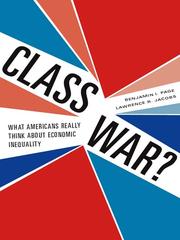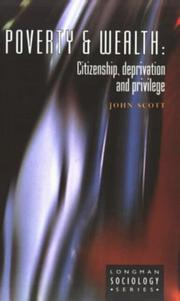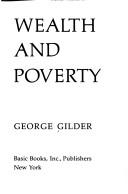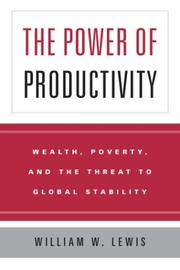| Listing 1 - 10 of 14 | << page >> |
Sort by
|
Book
Year: 2020 Publisher: Florence : Firenze University Press
Abstract | Keywords | Export | Availability | Bookmark
 Loading...
Loading...Choose an application
- Reference Manager
- EndNote
- RefWorks (Direct export to RefWorks)
In contrast to the debates of the past, which focused mainly on income inequality and the related elements of injustice, the recent interest in economic inequality focuses on its effects on economic growth and social development. New research is an important element of these recent debates: a historical approach that contextualizes inequality with reference to social relations, institutions, access to power and its cultural legitimacy can facilitate the understanding of the mechanisms that lead to inequality and its effects.
Income distribution --- Wealth --- Economic development --- wealth distribution --- economic inequality --- european history --- economic history --- pre-industrial economic history --- income distribution --- History --- History --- History --- Europe --- Economic conditions --- wealth distribution --- economic inequality --- european history --- economic history --- pre-industrial economic history --- income distribution
Book
ISBN: 0228005965 0228005957 0228005795 0228005809 9780228005964 9780228005957 Year: 2020 Publisher: Montreal : McGill-Queen's University Press,
Abstract | Keywords | Export | Availability | Bookmark
 Loading...
Loading...Choose an application
- Reference Manager
- EndNote
- RefWorks (Direct export to RefWorks)
"Economic inequality is one of the great issues of our era. But what is inequality? Eric Sager argues that inequality is more than the distribution of income and wealth. Inequality is the idea that there are wide gaps between rich and poor, that the gaps are both an economic problem and a social injustice, and that the problem can be either eliminated or reduced. This idea arose in a transatlantic world, in the long evolution of political economy in Britain and the United States from classical economics to the emerging welfare economics of the twentieth century. Within this transatlantic frame inequality took a distinct form in Canada. It appeared among radical reformers and republicans in the 1830s. It arose in a critique of wealth among Protestant thinkers and their moral imperatives. The idea appeared among labour radicals and reformers who interpreted the conflict between capital and labour as a problem of distribution. For social gospelers inequality was a simplifying frame that made sense of an alien modernity of industry, urbanism, and class conflict. A tradition of idealist thought persisted in the twentieth century, sustaining the idea of inequality despite deep silences among Canadian economists. The idea appeared forcefully in social Catholicism in Quebec, and then waned in the political and intellectual justifications of the social security state. In the new era of inequality in our century, a political solution may rest upon the recovery of an older ethical idealism and in a historically-informed egalitarian politics."--
Equality --- Canada. --- Catholicism. --- Europe. --- Protestant. --- United States. --- distributive justice. --- economic history. --- ethics. --- gospel. --- inequality. --- liberal order. --- philosophy. --- religion. --- social. --- wealth distribution.
Book
Year: 2021 Publisher: Washington, D.C. : The World Bank,
Abstract | Keywords | Export | Availability | Bookmark
 Loading...
Loading...Choose an application
- Reference Manager
- EndNote
- RefWorks (Direct export to RefWorks)
The COVID-19 pandemic has brought about massive declines in well-being around the world. This paper seeks to quantify and compare two important components of those losses'increased mortality and higher poverty-using years of human life as a common metric. The paper estimates that almost 20 million life-years were lost to COVID-19 by December 2020. Over the same period and by the most conservative definition, more than 120 million additional years were spent in poverty because of the pandemic. The mortality burden, whether estimated in lives or years of life lost, increases sharply with gross domestic product per capita. By contrast, the poverty burden declines with per capita national income when a constant absolute poverty line is used, or is uncorrelated with national income when a more relative approach is taken to poverty lines. In both cases, the poverty burden of the pandemic, relative to the mortality burden, is much higher for poor countries. The distribution of aggregate welfare losses-combining mortality and poverty and expressed in terms of life-years -depends on the choice of poverty line(s) and the relative weights placed on mortality and poverty. With a constant absolute poverty line and a relatively low welfare weight on mortality, poorer countries are found to bear a greater welfare loss from the pandemic. When poverty lines are set differently for poor, middle-income, and high-income countries and/or a greater welfare weight is placed on mortality, upper-middle-income and rich countries suffer the most.
Business Cycles and Stabilization Policies --- Coronavirus --- COVID-19 --- Disease Control and Prevention --- Global Wealth Distribution --- Health, Nutrition and Population --- Inequality --- Macroeconomics and Economic Growth --- Mortality --- Pandemic Impact --- Poverty --- Poverty and Health --- Poverty Monitoring and Analysis --- Poverty Reduction --- Welfare
Book
ISBN: 0226816044 Year: 2022 Publisher: Chicago, Illinois ; London, England : The University of Chicago Press,
Abstract | Keywords | Export | Availability | Bookmark
 Loading...
Loading...Choose an application
- Reference Manager
- EndNote
- RefWorks (Direct export to RefWorks)
A collection of twenty-three studies that explore the latest developments in the analysis of income and wealth distribution and mobility. Economic research is increasingly focused on inequality in the distribution of personal resources and outcomes. One aspect of inequality is mobility: are individuals locked into their respective places in this distribution? To what extent do circumstances change, either over the lifecycle or across generations? Research not only measures inequality and mobility, but also analyzes the historical, economic, and social determinants of these outcomes and the effect of public policies. This volume explores the latest developments in the analysis of income and wealth distribution and mobility. The collection of twenty-three studies is divided into five sections. The first examines observed patterns of income inequality and shifts in the distribution of earnings and in other factors that contribute to it. The next examines wealth inequality, including a substantial discussion of the difficulties of defining and measuring wealth. The third section presents new evidence on the intergenerational transmission of inequality and the mechanisms that underlie it. The next section considers the impact of various policy interventions that are directed at reducing inequality. The final section addresses the challenges of combining household-level data, potentially from multiple sources such as surveys and administrative records, and aggregate data to study inequality, and explores ways to make survey data more comparable with national income accounts data.
Wealth --- Income distribution --- inequality, class, mobility, policy, government, wealth distribution, nonfiction, economics, intergenerational transmission, poverty, luxury, stratification, population, equity, social justice, welfare, assistance, politics, political science, economy, households, income, wages, labor, savings, equality, democracy, dependents.

ISBN: 0472109065 9780472109067 Year: 1998 Volume: *2 Publisher: Ann Arbor The University of Michigan Press
Abstract | Keywords | Export | Availability | Bookmark
 Loading...
Loading...Choose an application
- Reference Manager
- EndNote
- RefWorks (Direct export to RefWorks)
Distributieve rechtvaardigheid --- Distribution of income --- Distributive justice --- Fortunes --- Income distribution --- Inequality of income --- Inkomens--Ongelijkheid --- Inkomens--Verdeling --- Inkomensongelijkheid --- Inkomensverdeling --- Inégalité des revenus --- Justice [Distributive ] --- Justice distributive --- Rechtvaardigheid [Distributieve ] --- Rechtvaardigheid [Verdelende ] --- Revenus--Inégalité --- Revenus--Répartition --- Richesse --- Rijkdom --- Répartition des revenus --- Verdelende rechtvaardigheid --- Wealth --- Wealth [Distribution of ] --- Distributive justice. --- Income distribution. --- Wealth.
Book
ISBN: 9788855180528 9788855180542 Year: 2020 Publisher: Florence : Firenze University Press
Abstract | Keywords | Export | Availability | Bookmark
 Loading...
Loading...Choose an application
- Reference Manager
- EndNote
- RefWorks (Direct export to RefWorks)
In contrast to the debates of the past, which focused mainly on income inequality and the related elements of injustice, the recent interest in economic inequality focuses on its effects on economic growth and social development. New research is an important element of these recent debates: a historical approach that contextualizes inequality with reference to social relations, institutions, access to power and its cultural legitimacy can facilitate the understanding of the mechanisms that lead to inequality and its effects.
History of Europe --- wealth distribution --- economic inequality --- european history --- economic history --- pre-industrial economic history --- income distribution --- Income distribution --- Wealth --- Economic development --- History --- Europe --- Economic conditions --- Development, Economic --- Economic growth --- Growth, Economic --- Economic policy --- Economics --- Statics and dynamics (Social sciences) --- Development economics --- Resource curse --- Affluence --- Distribution of wealth --- Fortunes --- Riches --- Business --- Finance --- Capital --- Money --- Property --- Well-being --- Distribution of income --- Income inequality --- Inequality of income --- Distribution (Economic theory) --- Disposable income --- economische geschiedenis

ISBN: 9786612239885 1282239880 0226644561 9780226644561 9780226644547 9780226644554 0226644545 0226644553 Year: 2009 Publisher: Chicago ; London : University of Chicago Press,
Abstract | Keywords | Export | Availability | Bookmark
 Loading...
Loading...Choose an application
- Reference Manager
- EndNote
- RefWorks (Direct export to RefWorks)
Recent battles in Washington over how to fix America's fiscal failures strengthened the widespread impression that economic issues sharply divide average citizens. Indeed, many commentators split Americans into two opposing groups: uncompromising supporters of unfettered free markets and advocates for government solutions to economic problems. But such dichotomies, Benjamin Page and Lawrence Jacobs contend, ring false. In Class War? they present compelling evidence that most Americans favor free enterprise and practical government programs to distribute wealth more e
Income distribution --- Public opinion --- Distribution of income --- Income inequality --- Inequality of income --- Distribution (Economic theory) --- Disposable income --- Public opinion. --- United States --- Economic conditions. --- Social conditions. --- Politics and government. --- Government --- History, Political --- E-books --- Economic conditions --- Social conditions --- Politics and government --- decision making, political science, politics, governance, government, governing, united states of america, usa, american society, economics, economic inequality, class, free markets, wealth distribution, wealthy, poor, conservative egalitarianism, individualism, self-reliance, public intervention, level playing field, opportunity, opinion studies, minimum wage, education system, healthcare, universal health insurance, taxation, taxes, pubic opinions.

ISBN: 0582080894 Year: 1994 Volume: *2 Publisher: London New York Longman
Abstract | Keywords | Export | Availability | Bookmark
 Loading...
Loading...Choose an application
- Reference Manager
- EndNote
- RefWorks (Direct export to RefWorks)
BMLIK
National wealth --- welvaartsstaat --- kansarmoede --- armoede --- burgerschap --- Great Britain --- Armoede --- Destitution --- Egalité --- Equal opportunities --- Equality --- Fortunes --- Gelijke kansen --- Gelijkheid --- Pauvreté --- Poverty --- Richesse --- Rijkdom --- Wealth --- Wealth [Distribution of ] --- 316.442 <41> "18/19" --- -Wealth --- -Equality --- -#SBIB:316.8H15 --- #SBIB:004.GIFTSOC --- Egalitarianism --- Inequality --- Social equality --- Social inequality --- Political science --- Sociology --- Democracy --- Liberty --- Affluence --- Distribution of wealth --- Riches --- Business --- Economics --- Finance --- Capital --- Money --- Property --- Well-being --- Basic needs --- Begging --- Poor --- Subsistence economy --- Gelijkheid. Ongelijkheid. Pluralisme. Sociale ongelijkheid--Verenigd Koninkrijk van Groot-Brittannië en Noord-Ierland--Hedendaagse Tijd --- Welzijns- en sociale problemen: sociale ongelijkheid en armoede --- Equality. --- Poverty. --- Wealth. --- 316.442 <41> "18/19" Gelijkheid. Ongelijkheid. Pluralisme. Sociale ongelijkheid--Verenigd Koninkrijk van Groot-Brittannië en Noord-Ierland--Hedendaagse Tijd --- #SBIB:316.8H15 --- Poverty - Great Britain. --- Wealth - Great Britain. --- Equality - Great Britain.

ISBN: 0465091059 Year: 1981 Publisher: New York Basic Books
Abstract | Keywords | Export | Availability | Bookmark
 Loading...
Loading...Choose an application
- Reference Manager
- EndNote
- RefWorks (Direct export to RefWorks)
Economic order --- Economic policy and planning (general) --- Income --- United States --- Capitalism --- Capitalisme --- Capitalisme monopoliste d'État --- Fortunes --- Kapitalisme --- Marché [Économie de ] --- Market economy --- Markteconomie --- Richesse --- Rijkdom --- Régime capitaliste --- Système capitaliste --- Wealth --- Wealth [Distribution of ] --- Économie capitaliste --- Économie de marché --- Économie libérale --- Etats-Unis --- Economic conditions --- Economic policy --- Conditions économiques --- Politique économique --- AA / International- internationaal --- 330.14 --- 339.21 --- 330.56 --- theories economiques --- prosperite et bien etre --- lutte contre la pauvrete --- politique economique --- eua --- Affluence --- Distribution of wealth --- Riches --- Business --- Economics --- Finance --- Capital --- Money --- Property --- Well-being --- Profit --- Kapitaal. Kapitaalbegrip. Kapitaaltheorie. Kapitaalwinst. Meerwaarde. Kapitaalallocatie. Kapitaalaccumulatie. Kapitaalconcentratie. Kapitaalvorming --- Ongelijkheid en herverdeling van vermogens en inkomens. Inkomensbeleid. --- Nationaal inkomen. Volksinkomen. Gezinsinkomen. Vermogensstratificatie. Particuliere inkomens en bestedingen. Armoede. Honger --- economische theorieen --- welvaart en welzijn --- armoedebestrijding --- economisch beleid --- vsa --- -Economic policy. --- 330.56 Nationaal inkomen. Volksinkomen. Gezinsinkomen. Vermogensstratificatie. Particuliere inkomens en bestedingen. Armoede. Honger --- 330.14 Kapitaal. Kapitaalbegrip. Kapitaaltheorie. Kapitaalwinst. Meerwaarde. Kapitaalallocatie. Kapitaalaccumulatie. Kapitaalconcentratie. Kapitaalvorming --- Conditions économiques --- Politique économique --- Ongelijkheid en herverdeling van vermogens en inkomens. Inkomensbeleid --- Economic policy. --- 1945 --- -United States --- United States of America

ISBN: 0226476766 0226476987 9786612538094 0226477002 1282538098 9780226477008 9780226476766 9780226476988 Year: 2004 Publisher: Chicago : University of Chicago Press,
Abstract | Keywords | Export | Availability | Bookmark
 Loading...
Loading...Choose an application
- Reference Manager
- EndNote
- RefWorks (Direct export to RefWorks)
The disparity between rich and poor countries is the most serious, intractable problem facing the world today. The chronic poverty of many nations affects more than the citizens and economies of those nations; it threatens global stability as the pressures of immigration become unsustainable and rogue nations seek power and influence through extreme political and terrorist acts. To address this tenacious poverty, a vast array of international institutions has pumped billions of dollars into these nations in recent decades, yet despite this infusion of capital and attention, roughly five billion of the world's six billion people continue to live in poor countries. What isn't working? And how can we fix it? The Power of Productivity provides powerful and controversial answers to these questions. William W. Lewis, the director emeritus of the McKinsey Global Institute, here draws on extensive microeconomic studies of thirteen nations over twelve years-conducted by the Institute itself-to counter virtually all prevailing wisdom about how best to ameliorate economic disparity. Lewis's research, which included studying everything from state-of-the-art auto makers to black-market street vendors and mom-and-pop stores, conclusively demonstrates that, contrary to popular belief, providing more capital to poor nations is not the best way to help them. Nor is improving levels of education, exchange-rate flexibility, or government solvency enough. Rather, the key to improving economic conditions in poor countries, argues Lewis, is increasing productivity through intense, fair competition and protecting consumer rights. As The Power of Productivity explains, this sweeping solution affects the economies of poor nations at all levels-from the viability of major industries to how the average consumer thinks about his or her purchases. Policies must be enacted in developing nations that reflect a consumer rather than a producer mindset and an attendant sense of consumer rights. Only one force, Lewis claims, can stand up to producer special privileges-consumer interests. The Institute's unprecedented research method and Lewis's years of experience with economic policy combine to make The Power of Productivity the most authoritative and compelling view of the global economy today, one that will inform political and economic debate throughout the world for years to come.
Consumption (Economics). --- Economic development. --- Economic stabilization. --- Investments, Foreign. --- Microeconomics. --- Poverty. --- Wealth. --- Industrial productivity --- Economic policy --- Competition, International --- Consumption (Economics) --- Investments, Foreign --- Wealth --- Poverty --- Economic stabilization --- Economic development --- Microeconomics --- 338.06 --- Price theory --- Economics --- Development, Economic --- Economic growth --- Growth, Economic --- Statics and dynamics (Social sciences) --- Development economics --- Resource curse --- Adjustment, Economic --- Business stabilization --- Economic adjustment --- Stabilization, Economic --- Destitution --- Basic needs --- Begging --- Poor --- Subsistence economy --- Affluence --- Distribution of wealth --- Fortunes --- Riches --- Business --- Finance --- Capital --- Money --- Property --- Well-being --- Capital exports --- Capital imports --- FDI (Foreign direct investment) --- Foreign direct investment --- Foreign investment --- Foreign investments --- International investment --- Offshore investments --- Outward investments --- Capital movements --- Investments --- Consumer demand --- Consumer spending --- Consumerism --- Spending, Consumer --- Demand (Economic theory) --- International competition --- World economics --- International relations --- International trade --- War --- Economic nationalism --- Economic planning --- National planning --- State planning --- Planning --- National security --- Social policy --- Productivity, Industrial --- TFP (Total factor productivity) --- Total factor productivity --- Industrial efficiency --- Production (Economic theory) --- Economic aspects --- Industrial productivity. --- Economic policy. --- Competition, International. --- Competition [International ] --- Concurrentie [Internationale ] --- Economische stabilisatie --- Industrie--Productivité --- Industrie--Produktiviteit --- Industriële produktiviteit --- Industry--Productivity --- Internationale concurrentie --- Investeringen [Buitenlandse ] --- Investments [Foreign ] --- Productivité industrielle --- Rijkdom --- Stabilisation économique --- Wealth [Distribution of ] --- poverty, terrorism, humanitarian aid, civil war, conflict, state violence, influence, power, rogue nations, immigration, refugees, migration, diaspora, stability, security, wealth gap, government, politics, political science, economics, nonfiction, history, capital, investment, solvency, exchange-rate flexibility, education, consumer rights, competition, productivity, economic stabilization, microeconomics, japan, korea, brazil, russia, europe, india.
| Listing 1 - 10 of 14 | << page >> |
Sort by
|

 Search
Search Feedback
Feedback About UniCat
About UniCat  Help
Help News
News